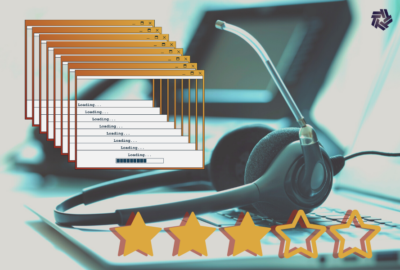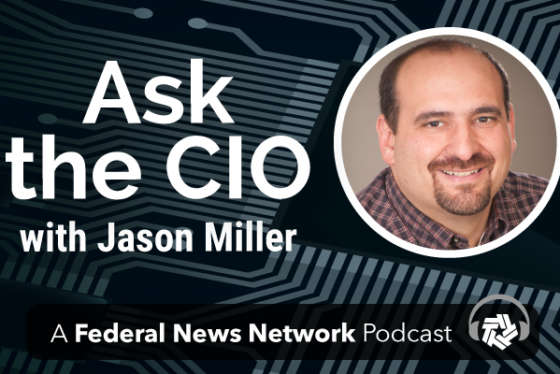Kimberly Nelson – Environmental Protection Agency
Kim Nelson is Assistant Administrator for the Office of Environmental Information at the Environmental Protection Agency. <br> <a...
FEDERALNEWSRADIO.COM: Before we get in to some of the things you’re working on right now, give me an update on the e-rulemaking initiative. Where do you stand on that?
NELSON: As you know, the e-rulemaking initiative was launched in January of 2003. We’re about 18 months into the project. I think this is one of the greatest e-gov initiatives that we’ve seen in a long time. This initiative has the potential to involve millions of citizens in the way we govern this country. We launched 18 months ago, and since that time we’ve seen almost a half million different people come to that site and get information about rules across the entire federal government. We think it’s very exciting. The involvement of citizens in the work of federal agencies is going to change as a result of making this kind of service available to citizens across the country.
FEDERALNEWSRADIO.COM: You gave me an answer there [on how many have visited] about a half million so far. Do you have any idea what the potential could be and how you would ramp up to meet that demand?
NELSON: We’ve got millions and millions of citizens in the country, so the potential is unlimited. What we’re doing to ramp up to the demand is to expand the services. Right now you can find any rule that’s been published by any federal agency in one place. You can search a key word you might be interested in, if it happens to be something related to health like mercury, or if it happens to be something related to recreation, or your business, you can search on a key word and find any rule which is amazing. In the next version, which we intend to come on line later this year and through 2005, not only will you be able to see every rule, but you’ll be able to see every single comment that’s been submitted in response to a rule. So if you really want to follow what people have been saying about a particular rule, you can log on every day and see what people across the country are saying in response to a policy enacted, or a rule. Before if you wanted to do that, you’d have to go every day and sit in a dark room someplace, usually in the basement of a building, and sift through paper after paper after paper. But now you can sit in the comfort of your living room or a library or your office and see what people are saying about rules. And maybe that kind of online involvement may even affect your personal opinion or your professional opinion and you may want to adjust your comments. So it makes it very interactive. It makes real-time government decision making for citizens that want to be involved.
FEDERALNEWSRADIO.COM: Let me move on to something else. At EPA, why was it necessary for your to expand the information exchange network? And, can you give me a brief explanation of what that network does?
NELSON: I’m not sure the word “expand” is actually accurate. The Environmental Information Exchange Network is something brand new. This is a partnership that came about from the states, the tribes and the EPA, and it’s all part of a vision that we have that decision makers, environmental policy makers and citizens across the country should have access to the most accurate, the most timely, the most relevant environmental information. What we’re doing through this exchange network is using the technology that the private sector uses in the e-commerce world. So for the first time we’re applying these new tools and techniques to share information between states and tribes and EPA and other decision makers. This is significant for a couple of reasons. First it will eliminate a lot of redundancy in state government and save the states a lot of money. And because we’re giving them grants of up to $20 million a year, we’re actually paying the states to improve and enhance and modernize their information systems. And ultimately, the reason it is important to citizens, is that we will all, across the country, have access to better environmental data, more timely data, and ultimately more information about the condition of the environment. I’ll give you one example that’s really relevant because it’s summertime. One of the grants that we recently gave to New Jersey and some other states that have coastal beaches is a grant that will allow for the exchange of beach information. Through one of our grants, New Jersey is giving information on a daily basis to a group called Earth 911, a nonprofit, so that citizens can log on every day and see if the beach they want to go to today or tomorrow is open. And that’s an example of how powerful the network is.
FEDERALNEWSRADIO.COM: Your agency is actively involved in the nation’s security posture post-9/11. Can you comment on some of the ways technology is being used to carry out your role in that regard?
NELSON: I can. Most people probably don’t realize the active role EPA has played since 9/11. We’ve been a critical player in the cleanup of the World Trade Center and of the Hart Office Building as the result of anthrax, and help in the cleanup after the shuttle disaster. What we’ve done at EPA as a result of 9/11 is recognize that our role is changing as an environmental agency, and as such not only be reactive and have the highest level of emergency response capability, we also have to be more proactive in identifying patterns and trends and understanding what’s happening so we can prevent problems from occurring. We opened this year, I’m proud to say, a brand new emergency operations center, which is state of the art. Our office here is working with staff here in Washington and across the country on tools like an emergency response analyzer which allows us to integrate data from a dozen or more information systems and bring it into one system so people can see this while they’re in our emergency operations center. We have new geographic information, spatially enabled tools that help us better visualize information that’s coming in to the EOC. So we’ve done a lot to support our response teams across the country and ensure that they can work better together, communicate better, and have the tools they need at their disposal when a problem does occur.
FEDERALNEWSRADIO.COM: Any specific tools that are cool that are being used, like PDAs for field agents or anything like that, that you could tell me about?
NELSON: The agency recently won an award, just a couple of months ago as a matter of fact, for the PDA tools that we used during the shuttle disaster cleanup. We actually had staff in the field using wireless devices with cameras that were using those devices to take photographs of the debris and it was collected and to spatially locate the debris as it was being collected, having its latitude and longitude coordinates recorded, and then those pictures and coordinates and information were sent immediately off to NASA. So there is an example of a tool that was used in response to a critical moment in our nation’s history that ensured that the information was getting back to decision makers as quickly as possible and as accurately as possible.
FEDERALNEWSRADIO.COM: You have in the past expressed concern about a lack of specific skills in the IT arena. Have you made progress where you are? And where are there still shortfalls?
NELSON: One of the biggest areas where we recognized an incredible shortfall was in the area of project management within the agency. As IT projects evolved within EPA, most of those IT projects were being managed by biologists, scientists, engineers, throughout the agency – people who didn’t have the skills required to manage multi-million dollar complex information technology projects. What we’ve done is put effort into getting people trained in the area of project management. We’ve sent people to courses within the last year. We’ve identified who those people are who are managing those major projects and we’ve made sure they have the right level of training. Many of them are getting certified from the Project Management Institute , which is one of the premier certification organizations around the world for project management. We’re prepared at this point and time based on the assessments we’ve done, the training we’ve done and the certifications that we’ve done, to validate that every single person who is managing a project of significance in this agency has the necessary skills. What that’s going to mean to taxpayers is that projects get done on time, on budget and that’s important because we will be using taxpayer dollars as efficiently as possible.
FEDERALNEWSRADIO.COM: Let me move on to another question I’ve asked your counterparts at other agencies in recent weeks, and that’s about the relationship with vendors and contractors. Are they listening enough to your concerns when it comes to things like security when it comes to their products?
NELSON: We certainly have the experience that they’re listening. The vendor community that we’ve been dealing with here at EPA has offered some very creative and innovative approaches that we can use in meeting our security needs and protecting our assets. So my experience is that they are listening and responding. The challenge is that we have to work together to introduce some of these new ideas into the established business practices in the organization. But I think working together we have a terrific partnership in protecting the assets at EPA.
FEDERALNEWSRADIO.COM: I know you have a goal, if not a mandate, to try to do business with small and minority businesses. How can they set themselves apart and get their voices heard in such a broad playing field?
NELSON: We try to take some creative approaches. Even with some of our larger contracts, we’ve set standards that the prime contractors have to hire a certain number of smaller businesses as part of that procurement. We have been recognized by the Small Business Office for some of the creative approaches that we’ve taken in those larger procurements. We recognize that small businesses bring a lot to the table. I find that they’re very flexible and innovative and they often times have just what we need for particular problems. We’re fortunate here, even though we have those large contracts, under those large contracts we have terrific representation from very, very small and creative entrepreneurial firms.
FEDERALNEWSRADIO.COM: Anything we didn’t talk about this morning that you’d hoped we’d get to?
NELSON: I’m proud to say we got to “green” on our Presidents Management Agenda scorecard. We’ve been doing a lot of good work here in the last year in a number of areas. I’m proud to say that Administrator Leavitt now has “green” on his PMA scorecard for e-Gov.
Copyright © 2024 Federal News Network. All rights reserved. This website is not intended for users located within the European Economic Area.






